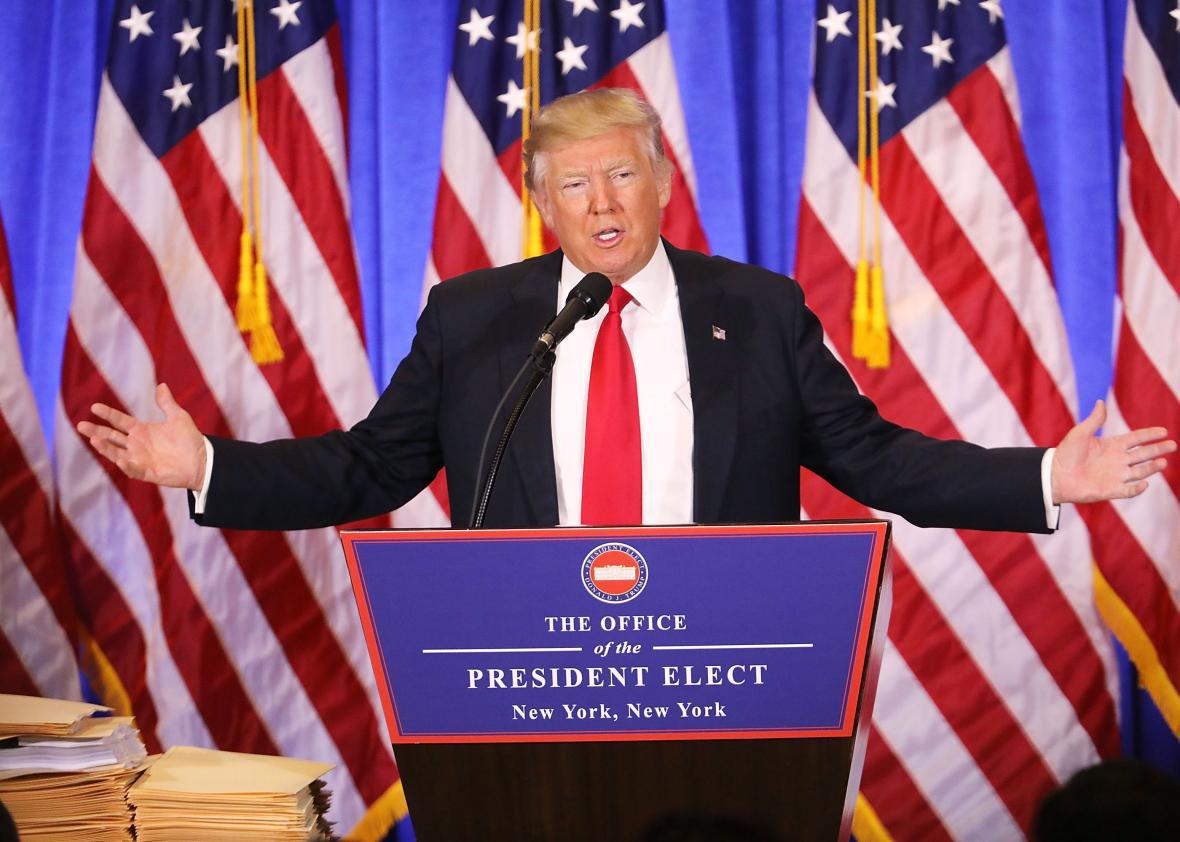Just in case the foreign policy establishment wasn’t rattled enough at the prospect of the next commander-in-chief, President-elect Donald Trump made clear he is willing to get rid of recently imposed sanctions against Moscow and do away with a cornerstone of decades of U.S. foreign policy. The Russia sanctions will stay as they are “at least for a period of time,” Trump told the Wall Street Journal in an interview. But things could change if Moscow starts working alongside Washington in other priorities, such as combating terrorism. “If you get along and if Russia is really helping us, why would anybody have sanctions if somebody’s doing some really great things?” Trump said.
Trump spoke to the Journal for an hour on the same day as President Obama extended sanctions against Russia, along with those against Iran, Cuba, Libya, Zimbabwe, and Venezuela. The United States imposed sanctions against Russia in 2014 over the annexation of Crimea. More recently, Obama’s administration imposed sanctions, including expelling 35 Russian diplomats, in retaliation for alleged cyberattacks during the presidential election campaign.
Moscow has said it wants Washington to lift the sanctions, even as it dismissed their importance. “Of course we’d like to see them gone but you know sanctions are not that effective,” Russian President Vladimir Putin’s spokesman, Dmitry Peskov, told NBC. “Sanctions hit the interests of the country that is under sanction but at the same time it hits the interest of the country that introduce the sanctions.”
Trump also told the Journal he’s ready to meet with Putin after he takes office. “I understand that they would like to meet, and that’s absolutely fine with me,” he said.
The president-elect’s conciliatory stance toward Moscow comes as officials on the transition team confirmed that Gen. Michael Flynn, who has been tapped as national security adviser, spoke to the Russian ambassador by phone on the same day as Obama announced the latest sanctions. The transition team had initially denied the phone call had taken place on Dec. 29, as reported by the Washington Post’s David Ignatius, saying it had actually been on Dec. 28, the day before the latest sanctions.
In the Journal interview, Trump said that continuing with the decades-long One China policy, which declares that Taiwan is a part of China, was not certain. “Everything is under negotiation including ‘One China’,” Trump said. He once again defended receiving the congratulatory call from Taiwan’s president, essentially calling the whole controversy ridiculous and adding that “it would have been very rude not to accept the phone call.”
Although during the campaign Trump had said he would label China a currency manipulator, he made clear in the interview he is in no rush to do that on day one of his presidency. “I would talk to them first,” Trump was quoted as saying. “Certainly they are manipulators. But I’m not looking to do that.”
Despite the tough words, Trump was sure to show the Journal reporters a holiday greeting card he received from China’s President Xi Jinping. “I have a beautiful card from the chairman,” he said.
